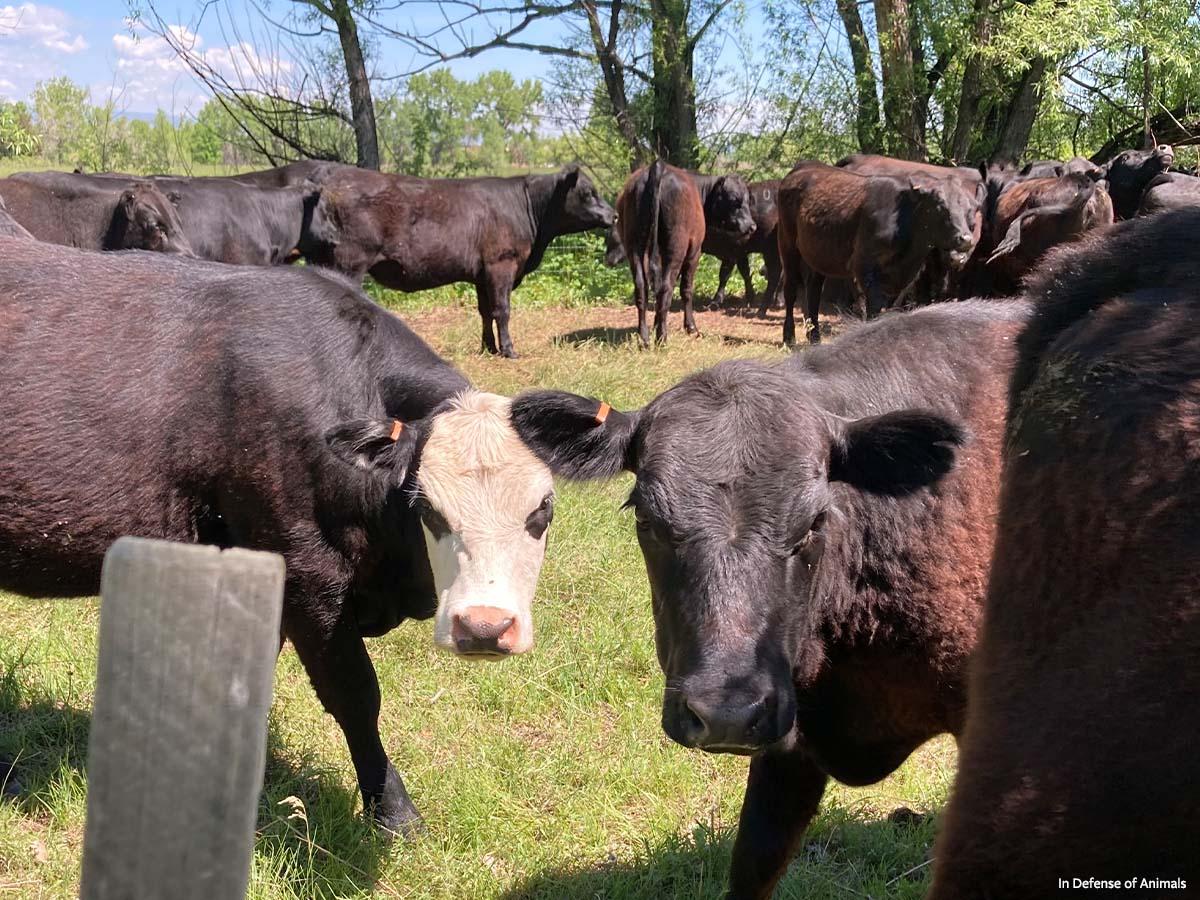Exploited & Unnamed: What Do We Call Members of the Bovine Family?
There is a lot of confusion surrounding the terms used for describing the members of the bovine family who we humans most commonly exploit for their flesh, skins, and secretions. Many people look at members of this particular group of bovines and simply call them "cows." Yet, have you stopped to consider that “cow” or “cows” isn’t actually their name? This month is Guardian Month, where we pay specific attention to the way words shape attitudes. We want to give these heavily abused animals the respect they deserve by clarifying the terms used to describe them, which currently reflect more of what we plan to exploit them for, than who they truly are.
Let’s start with “cows.” This common term, however, is not unique to the group of bovines we refer to as cattle. It’s one used to describe the females of many species.
So “cow” is not specific like “cat” or “pig” or “horse” or “fox.” It just means an adult female, and the reason most people enslave cows is to steal their milk that normally would go to their babies. Thus, their “purpose” as a female animal defines them.
The difference between cows and cattle is that the word "cattle" is plural without regard to sex, whereas the word “cows” refers only and strictly to mature female bovines. Other than the word bovine, which is not specific to cattle, there is no word for a single member of that family that can mean either gender, except for the word "calf" for the youngsters, though that term is hardly unique to the babies of cattle.
How sad that we have an animal where there is no unique common word for one individual of either sex. Think about that for a moment. The species’ name is Bos taurus, but when was the last time you heard that used?
The Bovidae comprise the biological family of cloven-hoofed, ruminant mammals, including cattle, bison, buffalo, and antelope. For this discussion, we will list the following terms and their definitions concerning cattle, including both those bred into existence against their will, raised and brutally killed for beef and dairy:
- Cow - an adult female bovine (can be either a cow exploited for her secretions (dairy) or a cow exploited for her flesh (beef).
- Bull - an adult, intact male bovine capable of breeding with female cows to produce calves (can be either a dairy breed bull or a beef breed bull)
- Steer - a castrated male not capable of breeding (mostly in feedlots to be slaughtered for meat)
- Heifer - a young female bovine (can be either a beef breed heifer being raised in a feedlot for meat or one chosen for breeding to become a beef cow for producing more calves; or a dairy breed heifer to raise for more milk production)
- Calf - a baby bovine of either gender, beef breed or dairy breed
- Cattle - multiple bovines of any gender or age, like a herd of cattle for dairy or beef
- Herd - a group of bovines of any age or gender
- Dairy cows (females) are bred with bulls (males) of their dairy breeds. The male babies are primarily raised for veal (the cruelest short existence for the babies), and the female babies are mostly saved to become cows for milk production or replacement reproduction.
- Beef cows (females) are those female babies raised to adulthood to breed with bulls (males) of beef cattle breeds. The male and female babies not saved for reproduction in the herd are put into feedlots to grow and fatten to slaughter for their flesh. Most of the male babies of beef cows are castrated as babies and become steers; a few are kept to become bulls for breeding.
- Most of the beef cattle out on the range are cows and their calves. During the breeding season, some bulls are in the herd with them.
Meat and dairy production are horrendous operations overflowing with atrocious standard practices hiding under fake greenwashing labels that destroy the environment and drive the climate crisis. If you haven't already, we encourage you to choose compassion and try a plant-based lifestyle by downloading our free Vegan Starter Guide.
Words shape attitudes, including our attitudes toward animals. Learn more about our Guardian Campaign!


